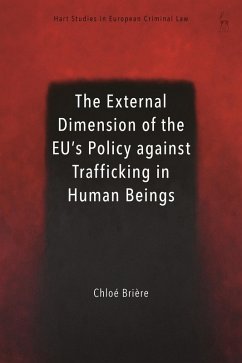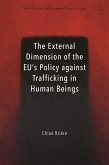This book explores the external dimension of the ambitious EU policy on human trafficking. Through this policy the EU institutions and Member States promote the eradication of human trafficking and support, to that end, cooperation with their partners, being third States or international organisations.
Analysing the unilateral and multilateral mechanisms the EU uses to achieve these aims, the book questions whether the EU's external response to human trafficking addresses it in all its dimensions, and whether it does so in a coherent way. As a case study, the book explores the cooperation of the EU with countries of the Western Balkans, which constitutes a specific unilateral mechanism. The analysis of the multilateral mechanisms covers the cooperation of the EU with key international and regional organisations combating human trafficking, including but not limited to the Council of Europe or the United Nations Office on Drugs and Crime.
The book also examines the impact of the evolution of migration flows and the increasing reliance of military tools on the EU's response to human trafficking.
Analysing the unilateral and multilateral mechanisms the EU uses to achieve these aims, the book questions whether the EU's external response to human trafficking addresses it in all its dimensions, and whether it does so in a coherent way. As a case study, the book explores the cooperation of the EU with countries of the Western Balkans, which constitutes a specific unilateral mechanism. The analysis of the multilateral mechanisms covers the cooperation of the EU with key international and regional organisations combating human trafficking, including but not limited to the Council of Europe or the United Nations Office on Drugs and Crime.
The book also examines the impact of the evolution of migration flows and the increasing reliance of military tools on the EU's response to human trafficking.









